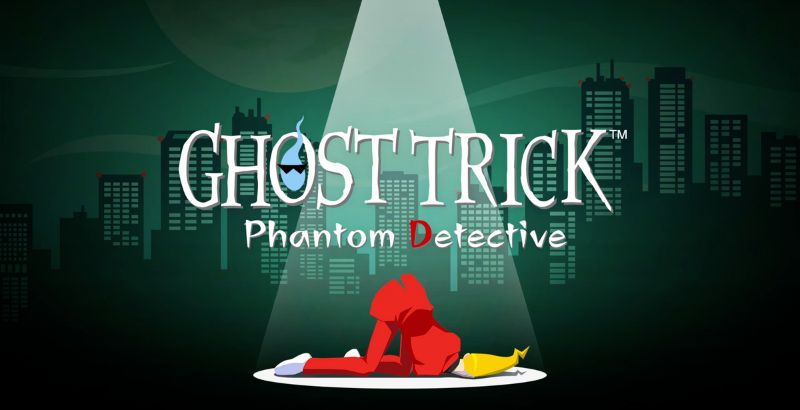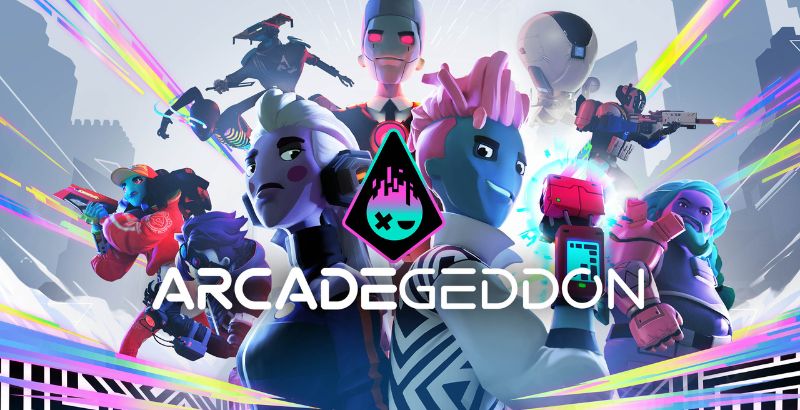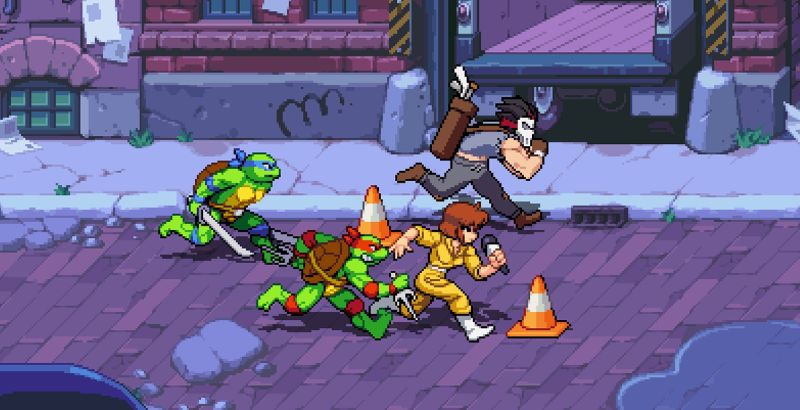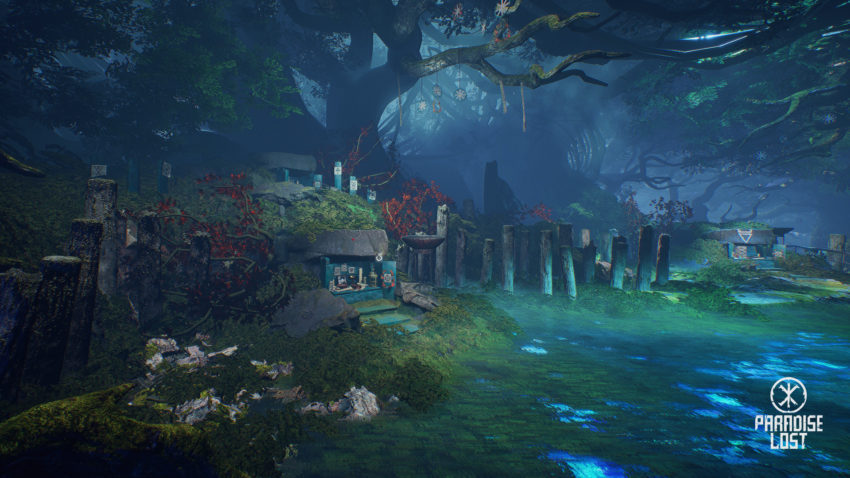
What if WWII had no victor? What if the war persisted for 20 more years and officially ended when the Nazis bombed most of Europe with nuclear missiles? In a frozen, post-apocalyptic wasteland, Paradise Lost features Szymon, a 12-year-old boy born and raised in the aftermath of this altered history.
Alone after his mother’s death, Szymon wanders the wasteland of Poland before stumbling upon an abandoned Nazi bunker. He is looking for a mysterious man he only knows from a photograph of his mother. Who is he, and what is his relationship to Szymon’s mother? Szymon hopes that the bunker will have answers. However, upon descending into the bunker, he is contacted by a girl, Ewa, who is supposedly trapped here. Ewa encourages Szymon to help her, but he’ll have to go deeper into the bunker.
Developer PolyAmorous has crafted an excellent narrative adventure game that features a typical post-apocalyptic setting but sets itself apart with its historical setting and the way it mixes retrofuturistic technology with Slavic mythology. Published by All in! Games, Paradise Lost, has a few hiccups but overall has a lot to offer for its four-hour playtime.
The pacing at the beginning of the game is slow-going, and mix in the fact that Szymon walks very slow with no running mechanic, you get a rather dull start to Paradise Lost. Thankfully, the plot ramps up after the first level, and the mysteries begin to unravel from thereon.
The story is driven primarily through Szymon’s actions and the flashbacks he experiences. However, by picking up records like personal letters and official government documents and interacting with personal belongings and accessing computer terminals, the alt-history of WWII, the bunker’s creation, and what happened to the inhabitants reveal themselves in snippets. In this way, Paradise Lost encourages players to explore to find these puzzle pieces and put them together yourself. There are also a few cute and quirky objects to find, such as a D&D character sheet. While not important to the story, these items will at least be worth a chuckle or two. So if you’re not someone who enjoys reading to get background information, this isn’t your game.
And once you have enough puzzle pieces, the poignant destiny of these people really hits. While the story is a quick one, combing the fact that the characters are likable, the type of dialogue choices you make, and the small optional tasks you can do really adhere you to these characters. Even though your dialogue choices might not have huge consequences, in the end, it’s nevertheless a nice touch to really engender what these two characters must be going through, knowing they’re all alone in this wasteland.
The main downfall of the narrative is its reference to the five stages of grief. Each level begins with a loading screen that reveals what stage of grief it represents. The first couple of stages were confusing, particularly in how they coincide with their stage of grief. The emotion certainly ramps up and suffuses through the latter half of the narrative. There is definitely some undercurrent of each stage to be found in the dialogue and text, but it’s never overtly obvious. While other games like RiME, whose entire environments reflect these stages, we don’t see the same dedication in Paradise Lost.
It feels like a stretch to describe this narrative as a journey through the five stages of grief. If one were to remove the labels from each level, the narrative would feel and impact exactly the same. It feels like the developers are reaching to compare what Szymon and Ewa go through as grief (though Szymon is likely grieving for his mother, it’s never the main focus of the narrative) and trying to create significance where there is none.
It’s important to note that because of the setting and the people whose belongings you search through, there are examples of appalling Nazi ideals to stumble upon, let alone the symbolism scattered all over a couple of levels. These ideals particularly linger in the Anger level, which perhaps is purposeful. But on the other side of the same coin, you learn through letters that many of the citizens are outspokenly against these ideals. So while there are swastikas and the Reichsadler in a handful of levels, the use of these elements is not dramatized or painted in a positive light. They’re just the background for this story, and the main character leaves these elements behind quickly enough.
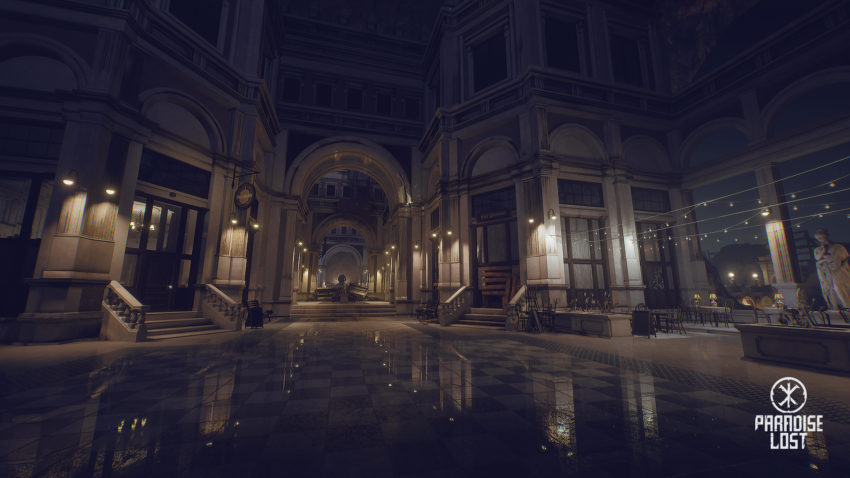
As Szymon ventures further into the bunker, he stumbles upon many different environments. From a mansion to laboratories to a grand tree whose roots and limbs have torn down the bunker walls, each setting is beautifully rendered and unique. The music and noises immerse the player seamlessly into Szymon’s shoes, with every creak of metal underfoot reminding players of just how old the bunker is.
While the narrative is great, some of the mechanics need some fine-tuning, and there are plenty of glitches that ruin the pacing. To name a few, Szymon and items clip through other objects, documents are sometimes completely invisible or pitch black, dialogue and subtitles don’t always match, and long pauses after interacting with objects left me trying to figure out if my game froze. Not to mention that Szymon walks so slow that it sometimes makes exploring a chore. Additionally, there is no zoom mechanic. Sometimes objects are hard to see after picking them up. And while you can rotate them marginally, it would be useful to be able to zoom in slightly to examine them better.
There aren’t many options you can change in the settings, but the one I did was the gamma. The game is generally dark, which is understandable because Szymon is underground, so increasing the gamma by a tick or two makes the game much more navigational. But it makes seeing which dialogue option is highlighted nearly impossible.
While there are some problems with pacing, mechanics, and glitches, Paradise Lost paints an interesting and immersive tale. Despite that the game’s objectives are simplistic, the short playtime is just right to produce a satisfying ending without dragging on. Paradise Lost‘s narrative is short but sweet.
Paradise Lost is available now on PC, Xbox One, and PlayStation 4.
Paradise Lost
-
Rating - 7/107/10
TL;DR
While there are some problems with pacing, mechanics, and glitches, Paradise Lost paints an interesting and immersive tale. Despite that the game’s objectives are simplistic, the short playtime is just right to produce a satisfying ending without dragging on.


